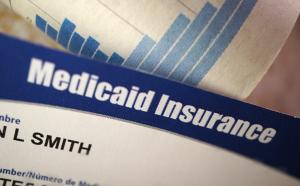How health savings accounts, or HSAs, can save you on medical costs
This post was originally published on Yahoo Money.
With rising health costs becoming a burden for many Americans, health savings accounts, or HSAs, are gaining traction as a way to offset some of those expenses.
Still, too few people take advantage of this account with “amazing” tax benefits, especially in retirement, personal finance expert Jean Chatzky said on Yahoo Finance.
“I think we’re just getting educated on HSAs. They’re fairly new,” Chatzky said on the first-ever National HSA Awareness Day. “And just like it took 401k’s a little while to gain steam, the same thing is happening with HSAs.”
Last year, there were over 25 million health savings accounts, up 13% from 2017, according to a Devenir Research report. The assets in those accounts totaled $53.8 billion, a 19% increase over the previous year.
If enrolled in a high-deductible health care plan, HSAs allow you to save tax-free money for out-of-pocket medical expenses as well as to invest it and earn more.

Chatzky also noted the main tax perks you get from HSAs.
“You get a tax deduction for putting your money in. It grows tax-free when you pull it out and use it for qualified medical expenses, you pay no more taxes,” Chatzky said. “You can invest the money in these accounts, allowing it to grow and become, essentially, a supplemental account for retirement.”
Once you hit retirement age, you can use the money in your HSA penalty-free for any expense – even those not related to health care, she said.
Last year, those with HSAs contributed 22% more than in 2017, according to Devenir Research. Employer contributions also increased. The average contribution amount rose to $839 up from $604 in 2017. Those contributions stay with you even if you change jobs. Any unused funds also roll over from year to year.
But even if you spend everything you put into your HSA on health care expenses during the year – instead of letting the balance invest and grow – you’re still coming out ahead, Chatzky said.
“It's like getting … a 25% savings on those medical expenses just because of the tax benefits,’’ Chatzky said.
Read more in our Healthcare section
Read more personal finance information, news, and tips on Cashay





